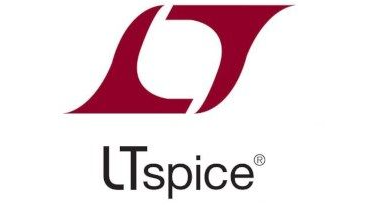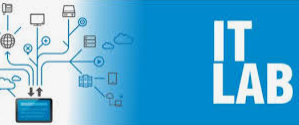This course is currently in a Teach-Out mode. New enrolments into this course are no longer accepted..
What do home automation, self-driving vehicles and the NBN all have in common? They all rely on networks. When you study a of Bachelor Engineering Technology (Telecommunications) you’ll learn to design and construct systems like these. If you enjoy solving complex problems and building systems using your hands, this course is for you.
DURATION
3 Years (6 Trimesters) Full-Time or Equivalent Part-TimeINTAKES
On Teach-Out ModeVTAC CODE
9470194072 (DFP), 9470194733 (IFP)UAC CODE
N/ALOCATION
Melbourne Campus OnlyAQF LEVEL
Level 7| Duration 3 Years (6 Trimesters) Full-Time or Equivalent Part-Time | |
| Intakes - On Teach-out mode | |
| VTAC Code 9470194072 (DFP), 9470194733 (IFP) | |
| UAC Code N/A | |
| Location Melbourne Campus Only | |
| AQF Level Level 7 |
GET THE EDGE
This course is designed by a team of experienced industry professionals. It will extend your knowledge giving you the edge you need for a successful career in telecommunications and networking.
You’ll learn about the planning, design, implementation, management and maintenance of telecommunication systems and networks.
An essential part of the course is hands-on work with the latest hardware and software. You’ll get to choose from a broad range of electives in IT, computer networking, systems analysis and security.
LEARN AT THE FRONTLINE OF TECHNOLOGY
Telecommunications engineering is a highly specialised field. It focuses on the design, construction, installation, service and support of telecommunications equipment and systems. In a world where communication-related technology is rapidly changing, telecommunications engineers are essential in keeping information networks current, viable, and up running.
They have expert knowledge in telephone and communication networks and voice, video, and data communications systems.
THIS COURSE INCLUDES:
INDUSTRY PROJECTS
Learn how your knowledge can be applied in the workplace. We’re at the forefront of Work Integrated Learning.
HASSLE-FREE SUPPORT
Our lecturers are approachable and helpful. We offer more support than a traditional university.
HANDS-ON-LEARNING
Students pick MIT because they will get the practical experience they need to succeed. Learn both theory and practice.
HACKATHON
Take part in engaging teaching events like the Hackathon, where you test your skills on real systems.
PIONEERING TECHNOLOGY
Design and construct systems that will advance the way we live and work.
CRITICAL THINKING
Develop your ability to tackle complex new problems through research, analysis and evaluation.
CAREER PATHS
Graduates of the Bachelor of Engineering Technology (Telecommunications) have found jobs at Ericsson, Telstra, Optus, Australian Defence Industry, Mercedes Benz, Hazlehurst, TPG, NBN, Harvey Norman and more.
A Bachelor of Engineering Technology (Telecommunications) could lead to jobs like these:
- Industrial Design Engineers
- Network Architects
- Network Analyst
- Broadcasting Technician
- Communications Engineer
- Microwave Engineer
- Communications Lines-person
- Electronics Engineering Associate
- Security System Technician
- Telecommunications Technician
- Electrical Engineer
- Electronic Equipment Technician
PROFESSIONAL RECOGNITION AND ACCREDITATION
The Bachelor of Engineering Technology (Telecommunications) is fully accredited by Engineers Australia. Graduates of the program are eligible for graduate membership of Engineers Australia at the Engineering Technologist level (Sydney Accord-https://www.ieagreements.org/accords/sydney/). Australia is one of the seven founding signatories of the Sydney Accord, and graduates of this degree are recognised internationally under this accord.
Your engineering accreditation is recognised around the world in countries that are signatories of the Sydney Accord (https://www.ieagreements.org/accords/sydney/). Other countries also are likely to recognise the Sydney Accord qualification as the highest engineering accreditation the accord, but it is not guaranteed.
MIT’s courses are accredited by TEQSA Tertiary Education Quality and Standards Agency. TEQSA is Australia’s independent national quality assurance and regulatory agency for higher education in Australia.
COURSE STRUCTURE
Each unit (except the Industry Experience) is worth 15 credit points. A full-time study load is 60 credit points per trimester. Students must complete 360 credit points overall.
First Year and Second Year
Students learn about the principles and fundamentals of telecommunication engineering and are provided with skills in mathematics and networking to broaden their career scopes and prospects.
Third Year
Students will have an in-depth understanding of modern telecommunication networks, services, and applications to make them job-ready in the final year.
Students also undertake industry-based projects that allow them to apply theoretical concepts with a hands-on approach in problem-solving, design, project management, communication, and deepening soft skills.
This study plan may change according to unit availability, credit transfers or Recognition of Prior Learning.
Common Core Units
- AIM100 Academic Integrity Module
- BE101 Engineering Mathematics
- BB101 Business Communication
- BE104 Electrical Circuit Fundamentals
- BE107 Engineering Mathematics 2
- BE102 Digital Systems
- BE103 Engineering Practice
- BN106 Networking Fundamentals
- BE108 Programming for Engineering
- BE201 Digital Communication
- BN200 Network Security Fundamentals
- BE200 Signals and Systems
- BN209 Software Engineering
- BE700 Industry Experience
- BE202 Local and Wide Area Network Technologies
- BE203 Telecommunication Systems Engineering
- BN205 Project Management
- BE204 Embedded Systems
- BE301 Telecommunication Modeling and simulation
- BE302 Mobile and Satellite Communication Systems
- BE391 Capstone Project 1
- BN303 Wireless Networks & Security
- BE392 Capstone Project 2
Electives
Please note some of these units have prerequisites. You'll need to satisfy the prerequisite requirements to enroll.
- BN223 Cyber Security Principles (Pre-requisite: BN200 Network Security Fundamentals)
- BN305 Virtual Private Networks (Pre-requisite: BN200 Network Security Fundamentals)
- BN309 Computer Forensics (Pre-requisite: BN200 Network Security Fundamentals)
- BN311 IT Security Management (Pre-requisite: BN200 Network Security Fundamentals)
- BN323 Ethical Hacking and Security Governance (Pre-requisite: BN223 Cyber Security Principles)
- BN324 Enterprise Cyber Security and Management (Pre-requisite: BN223 Cyber Security Principles)
- BE305 Cloud Engineering (Pre-requisite: BE202 Local and Wide Area Network Technologies)
- BE393 Software-Defined Radio Communications (Pre-requisite: BE201 Digital Communication)
- BN104 Operating Systems
- BN109 Web and Multimedia Systems
- BN110 Information Systems Fundamentals
- BN204 Database Technologies
- BN314 System Architecture
- BN315 Enterprise Architecture
- BB103 Management Principles
- BB104 Introductory Accounting
- BB105 Marketing Principles
- BB106 Economic Principles
- BB107 Commercial Law
- BB108 Business Statistics
Please note:
- AIM100 Academic Integrity Module (a zero credit point course that all MIT students must complete).
- The program is available for each intake but note some units of study are subject to quotas and minimum enrolment requirements.
- Not all units of study are available every Trimester and changes in program structure occur from time to time.
- Program structures and units are subject to change through the process of regular course revision. There is no guarantee that every unit will be offered in any particular trimester.
As part of the Bachelor of Engineering Technology (Telecommunication) degree, you’ll have access to the Work Integrated Learning unit and two Project Units:
MIT’s School of IT & Engineering has designed these units to provide you with real-world experience, working for an industry client.
The additional two project units provide you with a capstone final year project in a team environment through research, analysis and development in the telecommunications industry.
You’ll learn to tackle complex real-world problems using technical and creative skills
Industry Experience
A crucial part of the Bachelor of Engineering Technology (Telecommunication) is the Work Integrated Learning component through the unit BE700. This allows students to put their theoretical knowledge into practice in a real workplace. We offer a wide range of industry partnerships to give students access to a range of employers.
This is a mandatory component for awarding of the degree. Students are required to undertake Industry Placement of twelve weeks (full-time) or 24 weeks (part-time).
If a third party is required to find the placement, a fee of up to $2,500 (currently) will incur - for which the student is responsible. This industry experience is designed to meet Engineers Australia accreditation requirements.
Industry-Based Projects and Internships
Mapping Engineering Stage 1 Competency Standards
Read more about why you should study telecommunications engineering
BACHELOR OF ENGINEERING TECHNOLOGY (TELECOMMUNICATIONS) STUDENT PROFILE
The table below indicates the likely peer cohort for new students at the Melbourne Institute of Technology. It provides data on students that commenced Bachelor of Enginneering Technology (Telecommunications) in the academic year 2023, including those admitted through all offer rounds, in Melbourne Campus, and international students studying Bachelor of Enginneering Technology (Telecommunications) at Melbourne Institute of Technology.
| Applicant background | Full year intake [2023] |
|
| Number of students | Percentage of all students | |
| (A) Past higher education study (includes a bridging or enabling course) |
N/P | N/P |
| (B) Past vocational education and training (VET) study | - | - |
(C) Recent secondary education
|
- | - |
|
- | - |
|
N/P | N/P |
| (D) Work and life experience (Admitted on the basis of previous achievement other than the above) | - | - |
| International Students | N/P | N/P |
| All Students | L/N | 100.0% |
Notes:
- L/N - Low numbers: the number of students is less than 5.
- N/A - Data not available for this item.
- N/P - Data not published for this item.
Read our institute-wide student profile
LEARNING OUTCOMES
Graduates of this course will:
- Possess a broad body of knowledge to undertake professional work in the area of networking
- Undertake analysis of cyber security tools and technologies to apply them effectively in an organisation
- Possess the ability to solve problems that require critical analysis and synthesis
- Communicate clearly and effectively with others in a professional setting
- Work independently and collaborate with others effectively
- Demonstrate analysis and evaluation skills in a different context
ENTRY REQUIREMENTS
Applicants must meet the academic entry requirements including prerequisites for their chosen course, and;
Applicants must meet the minimum English language requirement for their chosen course, and;
Domestic Applicants must be 17 years of age as at the commencement date of their chosen course or unit.
Admission criteria for applicants with recent secondary education
Applicants with recent secondary education are those who completed Year 12 within the last two years. You’ll need to satisfy the following requirements:
- Successful completion of your Victorian Certificate of Education (VCE), HSC (Higher Secondary Certificate) or the equivalent in your state or territory, or
- Successful completion of the International Baccalaureate.
Prerequisites for students from Victoria:
Units 3 and 4: a study score of at least 20 in any English in VCE or equivalent;
Units 3 and 4: a study score of at least 20 in any Mathematics in VCE or equivalent.
Prerequisites for students from New South Wales:
Band 2 or higher in any English in HSC;
Band 2 or higher in any Mathematics in HSC or equivalent.
Admission Criteria for Non-year 12 Applicants
Non-year 12 Prerequisite
Compulsory: As for Year 12 or equivalent.
Applicants with higher education study
Applicants are eligible for admission if they’ve completed full-time equivalent higher education study (the number of units or courses will vary depending on your previous institution; however, this is equivalent to 4 units at MIT).
If you don't meet this requirement, we'll assess your admission on the basis of your previous academic history, which may include your higher education study results, Year 12 or equivalent study scores, and your personal statement.
Applicants with vocational education and training (VET) study
You must have completed an AQF Certificate IV or above from a Registered Training Organisation (RTO). You must also meet any pre-requisites prescribed for the course.
Applications with Work and Life Experience
1. Requirements for applicants who did not complete Year 12:
Applicants under this category will be assessed on a case-by-case basis on one or more of the following
- Substantial relevant work experience that demonstrates that you’ve satisfied the entry requirements for the course, or
- Completion of any relevant non-formal courses, and
- A personal statement outlining your motivation to study the course and details of personal circumstances, including your life and work experience. You should provide any aspect of your personal history that may support your application, including community service, work experience, and achievements.
2. Requirements for applicants who completed Year 12 more than two years ago:
Applicants who completed their Year 12 studies more than two years ago but have not completed any VET or higher education studies are assessed according to their Year 12 results.
Applicants with Bridging and enabling course
You're eligible to apply if you've completed a Foundation Studies or Tertiary Preparatory program at a university, TAFE or Registered Training Organisation (RTO).
Additional Information
Aboriginal and Torres Strait Islander people
Aboriginal and Torres Strait Islander applicants are assessed in the same way as applicants under the above categories.
Domestic applicants with overseas qualifications
Applicants with overseas qualifications need to establish whether their qualifications are equivalent to Australian qualifications. VTAC will advise MIT of the level of course in terms of the Australian Qualifications Framework according to NOOSR (the National Office for Overseas Skills Recognition) guidelines.
The Admissions Officer at MIT will then assess whether the qualification is suitable for entry into that course according to the course entry requirements.
English Language Requirements
Applicants with overseas qualifications must satisfy English language requirements in addition to meeting the academic requirements for the course.
Applicants with the following qualifications/English Language Tests may satisfy English requirements.
First Language English
If you completed Senior Secondary or Tertiary studies from a country where English is the first language.
Independent English Language Test Score
You need to achieve the minimum scores, as shown below.
| IELTS Academic |
Overall score 6.0 (no band less than 5.5) |
|---|---|
| TOFEL ibt |
Overall score 60-78 with minimum scores: Reading 12, Listening 11, Speaking 17, Writing 20 |
| PTE Academic |
Overall score 52 with (no score less than 46) |
| Cambridge CAE |
CAE score of 169 ( no band less than 162) |
IELTS Academic
Overall score 6.0
(no band less than 5.5)
TOFEL ibt
Overall score 60-78 with minimum scores: Reading 12, Listening 11, Speaking 17, Writing 20
PTE Academic
Overall score 52 with (no score less than 46)
Cambridge CAE
CAE score of 169 ( no band less than 162)
Pathways
TAFE/VET Diploma and Advanced Diploma graduates may be eligible to apply for Credit Transfer. You can get up to one year credit transfer for a relevant Diploma and up to 1.5 years for a relevant Advanced Diploma.
Credit Transfer
Credit transfer provides students with credit for learning already achieved. Applicants are assessed on a case-by-case basis. Learn more about credit transfer.
Applications for credit transfer must be made before or during orientation and enrolment week.
Recognition of Prior LearningRecognition of prior learning (RPL) allows students to gain credit towards their course based on their prior learning (including formal, informal and non‐formal learning). Applicants are assessed on a case-by-case basis. Learn more about credit transfer.
Applications for Recognition of Prior Learning must be made before or during orientation and enrolment week.
For further information, see the links below:
GAIN REAL-WORLD EXPERIENCE USING TOOLS









State of the art facilities


FEE INFORMATION
Study now and pay later with FEE-HELP.Students studying at MIT may be eligible for FEE-HELP. FEE-HELP is a loan scheme that assists eligible fee-paying students to pay their tuition fees. An eligible person may borrow up to the FEE-HELP limit to pay tuition fees over their lifetime.
Read more about FEE-HELP or visit Study Assist.
Tuition feesFor fee information visit the tuition fee page.
Financial assistance
Youth and student allowances
For details on Youth Allowance, Austudy and ABSTUDY, visit Human Services.
FEE INFORMATION
Tuition FeesFor the latest fee information visit the Tuition Fee Page.
If you have any questions regarding fees or payment options, please contact the Admissions Team at enquiries@mit.edu.au
FREQUENTLY ASKED QUESTIONS
What is Engineering Telecommunications?Engineering Telecommunications is the industry responsible for designing, planning, managing and installing the electrical and computing components of telecommunications networks. They use fibre optic, copper and wireless cloud networks to create networks that can integrate voice, data and video systems that allow us to communicate more effectively.
Does a Bachelor of Engineering in Telecommunications have good career opportunities?Yes. Telecommunications has been identified as an industry with strong expected growth and good employment outcomes. Highly skilled telecommunications professionals are in high demand as technology becomes increasingly powerful, inexpensive and accessible. The Bachelor of Engineering (Telecommunications) provides students with a solid foundation, focusing on the planning, design, implementation, management and maintenance of telecommunication systems and networks. This puts them in a strong position to find employment.
Have more questions?
Find answers to your FAQ here:
HOW TO APPLY
Step 1: Check the course entry requirements.
- Make sure you meet the entry requirements for your chosen course.
Step 2: What to include with your application?
- Evidence of completion of your previous studies that is award certificates or transcript with completion confirmed.
- Proof of identity—for example, your passport or birth certificate or citizenship.
- Evidence of English language skills (if you completed studies from a non-English speaking country).
- Proof of your permanent residency or citizenship if you were born overseas.
Certifying your academic documents
You should provide certified copies of your academic and other essential documents at the time of application.
Step 3: Apply
Apply direct to MIT using our direct Application Portal. The following applicants should apply directly:
- Postgraduate applicants
- Non-current Year 12 applicants
Current Year 12 students (VIC)
If you are a Year 12 student from VIC, you should apply through VTAC. VTAC applications are made online through the VTAC website. To learn more about the application process, visit VTAC.
Apply via VTACCurrent Year 12 students (NSW)
If you are a Year 12 student from NSW, you should apply through UAC. UAC applications are made online through the UAC website. To learn more about the application process, visit the UAC website
Apply via UACWHAT TO DO AFTER YOU HAVE APPLIED
The application processing time for direct applications is five working days after receiving the application at MIT. It may take longer during peak periods.
If you applied through VTAC, offers are released at different times. For more information on VTAC offer rounds and important dates, please visit the VTAC page.
Depending on your application method, if your application is successful, you will receive:
- Offer through your VTAC account if you applied through VTAC
- Offer by email if you applied directly to MIT.
How to accept your offer
Deferment of offer
GET THE EDGE
This course is designed by a team of experienced industry professionals. It will extend your knowledge giving you the edge you need for a successful career in telecommunications and networking.
You’ll learn about the planning, design, implementation, management and maintenance of telecommunication systems and networks.
An essential part of the course is hands-on work with the latest hardware and software. You’ll get to choose from a broad range of electives in IT, computer networking, systems analysis and security.
This course encourages innovation and creativity. You’ll learn to investigate problems, follow your instincts and work with others on learning challenges. And you’ll graduate ready to take on a range of roles in industry.
LEARN AT THE FRONTLINE OF TECHNOLOGY
Telecommunications engineering is a highly specialised field. It focuses on the design, construction, installation, service and support of telecommunications equipment and systems. In a world where communication-related technology is rapidly changing, telecommunications engineers are essential in keeping information networks current, viable, and up running.
They have expert knowledge in telephone and communication networks and voice, video, and data communications systems.
THIS COURSE INCLUDES:
INDUSTRY PROJECTS
Learn how your knowledge can be applied in the workplace. We’re at the forefront of Work Integrated Learning.
HASSLE-FREE SUPPORT
Our lecturers are approachable and helpful. We offer more support than a traditional university.
HANDS-ON-LEARNING
Students pick MIT because they will get the practical experience they need to succeed. Learn both theory and practice.
HACKATHON
Take part in engaging teaching events like the Hackathon, where you test your skills on real systems.
PIONEERING TECHNOLOGY
Design and construct systems that will advance the way we live and work.
CRITICAL THINKING
Develop your ability to tackle complex new problems through research, analysis and evaluation.
CAREER PATHS
Graduates of the Bachelor of Engineering Technology (Telecommunications) have found jobs at Ericsson, Telstra, Optus, Australian Defence Industry, Mercedes Benz, Hazlehurst, TPG, NBN, Harvey Norman and more.
A Bachelor of Engineering Technology (Telecommunications) could lead to jobs like these:
- Industrial Design Engineers
- Network Architects
- Network Analyst
- Broadcasting Technician
- Communications Engineer
- Microwave Engineer
- Communications Lines-person
- Electronics Engineering Associate
- Security System Technician
- Telecommunications Technician
- Electrical Engineer
- Electronic Equipment Technician
PROFESSIONAL RECOGNITION AND ACCREDITATION
The Bachelor of Engineering Technology (Telecommunications) is fully accredited by Engineers Australia. Graduates of the program are eligible for graduate membership of Engineers Australia at the Engineering Technologist level (Sydney Accord-https://www.ieagreements.org/accords/sydney/). Australia is one of the seven founding signatories of the Sydney Accord, and graduates of this degree are recognised internationally under this accord.
Your engineering accreditation is recognised around the world in countries that are signatories of the Sydney Accord (https://www.ieagreements.org/accords/sydney/). Other countries also are likely to recognise the Sydney Accord qualification as the highest engineering accreditation the accord, but it is not guaranteed.
MIT’s courses are accredited by TEQSA Tertiary Education Quality and Standards Agency. TEQSA is Australia’s independent national quality assurance and regulatory agency for higher education in Australia.
COURSE STRUCTURE
Each unit (except the Industry Experience) is worth 15 credit points. A full-time study load is 60 credit points per trimester. Students must complete 360 credit points overall.
First Year and Second Year
Students learn about the principles and fundamentals of telecommunication engineering and are provided with skills in mathematics and networking to broaden their career scopes and prospects.
Third Year
Students will have an in-depth understanding of modern telecommunication networks, services, and applications to make them job-ready in the final year.
Students also undertake industry-based projects that allow them to apply theoretical concepts with a hands-on approach in problem-solving, design, project management, communication, and deepening soft skills.
This study plan may change according to unit availability, credit transfers or Recognition of Prior Learning
Common Core Units
- AIM100 Academic Integrity Module
- BE101 Engineering Mathematics
- BB101 Business Communication
- BE104 Electrical Circuit Fundamentals
- BE107 Engineering Mathematics 2
- BE102 Digital Systems
- BE103 Engineering Practice
- BN106 Networking Fundamentals
- BE108 Programming for Engineering
- BE201 Digital Communication
- BN200 Network Security Fundamentals
- BE200 Signals and Systems
- BN209 Software Engineering
- BE700 Industry Experience
- BE202 Local and Wide Area Network Technologies
- BE203 Telecommunication Systems Engineering
- BN205 Project Management
- BE204 Embedded Systems
- BE301 Telecommunication Modeling and simulation
- BE302 Mobile and Satellite Communication Systems
- BE391 Capstone Project 1
- BN303 Wireless Networks & Security
- BE392 Capstone Project 2
Electives
Please note some of these units have prerequisites. You'll need to satisfy the prerequisite requirements to enroll.
- BN223 Cyber Security Principles (Pre-requisite: BN200 Network Security Fundamentals)
- BN305 Virtual Private Networks (Pre-requisite: BN200 Network Security Fundamentals)
- BN309 Computer Forensics (Pre-requisite: BN200 Network Security Fundamentals)
- BN311 IT Security Management (Pre-requisite: BN200 Network Security Fundamentals)
- BN323 Ethical Hacking and Security Governance (Pre-requisite: BN223 Cyber Security Principles)
- BN324 Enterprise Cyber Security and Management (Pre-requisite: BN223 Cyber Security Principles)
- BE305 Cloud Engineering (Pre-requisite: BE202 Local and Wide Area Network Technologies)
- BE393 Software-Defined Radio Communications (Pre-requisite: BE201 Digital Communication)
- BN104 Operating Systems
- BN109 Web and Multimedia Systems
- BN110 Information Systems Fundamentals
- BN204 Database Technologies
- BN314 System Architecture
- BN315 Enterprise Architecture
- BB103 Management Principles
- BB104 Introductory Accounting
- BB105 Marketing Principles
- BB106 Economic Principles
- BB107 Commercial Law
- BB108 Business Statistics
Please note:
- AIM100 Academic Integrity Module (a zero credit point course that all MIT students must complete).
- The program is available for each intake but note some units of study are subject to quotas and minimum enrolment requirements.
- Not all units of study are available every Trimester and changes in program structure occur from time to time.
- Program structures and units are subject to change through the process of regular course revision. There is no guarantee that every unit will be offered in any particular trimester.
As part of the Bachelor of Engineering Technology (Telecommunication) degree, you’ll have access to the Work Integrated Learning unit and two Project Units:
MIT’s School of IT & Engineering has designed these units to provide you with real-world experience, working for an industry client.
The additional two project units provide you with a capstone final year project in a team environment through research, analysis and development in the telecommunications industry.
You’ll learn to tackle complex real-world problems using technical and creative skills
Industry Experience
A crucial part of the Bachelor of Engineering Technology (Telecommunication) is the Work Integrated Learning component through the unit BE700. This allows students to put their theoretical knowledge into practice in a real workplace. We offer a wide range of industry partnerships to give students access to a range of employers.
This is a mandatory component for awarding of the degree. Students are required to undertake Industry Placement of twelve weeks (full-time) or 24 weeks (part-time).
If a third party is required to find the placement, a fee of up to $2,500 (currently) will incur - for which the student is responsible. This industry experience is designed to meet Engineers Australia accreditation requirements.
Industry-Based Projects and Internships
Mapping Engineering Stage 1 Competency Standards
Read more about why you should study telecommunications engineering
BACHELOR OF ENGINEERING TECHNOLOGY (TELECOMMUNICATIONS) STUDENT PROFILE
The table below indicates the likely peer cohort for new students at the Melbourne Institute of Technology. It provides data on students that commenced Bachelor of Enginneering Technology (Telecommunications) in the academic year 2023, including those admitted through all offer rounds, in Melbourne Campus, and international students studying Bachelor of Enginneering Technology (Telecommunications) at Melbourne Institute of Technology.
Applicant background - Full year intake [2023]
[Number of students | Percentage of all students]
(A) Past higher education study (includes a bridging or enabling course)
N/P
N/P
(B) Past vocational education and training (VET) study
-
-
(C) Recent secondary education
Admitted solely on the basis of ATAR (regardless of whether this includes the impact of adjustment factors such as equity or subject bonus points)
-
-
Admitted where both ATAR and additional criteria were considered (e.g. portfolio, audition, extra test, early offer conditional on minimum ATAR)
-
-
Admitted on the basis of other criteria only and ATAR was not a factor (e.g. special consideration, audition alone, schools recommendation scheme with no minimum ATAR requirement)
N/P
N/P
(D) Work and life experience (Admitted on the basis of previous achievement other than the above)
-
-
International Students
N/P
N/P
All Students
L/N
100.0%
Notes:
- L/N - Low numbers: the number of students is less than 5.
- N/A - Data not available for this item.
- N/P - Data not published for this item.
Read our institute-wide student profile
LEARNING OUTCOMES
Graduates of this course will:
- Possess a broad body of knowledge to undertake professional work in the area of networking
- Undertake analysis of cyber security tools and technologies to apply them effectively in an organisation
- Possess the ability to solve problems that require critical analysis and synthesis
- Communicate clearly and effectively with others in a professional setting
- Work independently and collaborate with others effectively
- Demonstrate analysis and evaluation skills in a different context
ENTRY REQUIREMENTS
Applicants must meet the academic entry requirements including prerequisites for their chosen course, and;
Applicants must meet the minimum English language requirement for their chosen course, and;
Domestic Applicants must be 17 years of age as at the commencement date of their chosen course or unit.
Admission criteria for applicants with recent secondary education
Applicants with recent secondary education are those who completed Year 12 within the last two years. You’ll need to satisfy the following requirements:
- Successful completion of your Victorian Certificate of Education (VCE), HSC (Higher Secondary Certificate) or the equivalent in your state or territory, or
- Successful completion of the International Baccalaureate.
Prerequisites for students from Victoria:
Units 3 and 4: a study score of at least 20 in any English in VCE or equivalent;
Units 3 and 4: a study score of at least 20 in any Mathematics in VCE or equivalent.
Prerequisites for students from New South Wales:
Band 2 or higher in any English in HSC;
Band 2 or higher in any Mathematics in HSC or equivalent.
Admission Criteria for Non-year 12 Applicants
Non-year 12 Prerequisite
Compulsory: As for Year 12 or equivalent.
Applicants with higher education study
Applicants are eligible for admission if they’ve completed full-time equivalent higher education study (the number of units or courses will vary depending on your previous institution; however, this is equivalent to 4 units at MIT).
If you don't meet this requirement, we'll assess your admission on the basis of your previous academic history, which may include your higher education study results, Year 12 or equivalent study scores, and your personal statement.
Applicants with vocational education and training (VET) study
You must have completed an AQF Certificate IV or above from a Registered Training Organisation (RTO). You must also meet any pre-requisites prescribed for the course.
Applications with Work and Life Experience
1. Requirements for applicants who did not complete Year 12:
Applicants under this category will be assessed on a case-by-case basis on one or more of the following
- Substantial relevant work experience that demonstrates that you’ve satisfied the entry requirements for the course, or
- Completion of any relevant non-formal courses, and
- A personal statement outlining your motivation to study the course and details of personal circumstances, including your life and work experience. You should provide any aspect of your personal history that may support your application, including community service, work experience, and achievements.
2. Requirements for applicants who completed Year 12 more than two years ago:
Applicants who completed their Year 12 studies more than two years ago but have not completed any VET or higher education studies are assessed according to their Year 12 results.
Applicants with Bridging and enabling course
You're eligible to apply if you've completed a Foundation Studies or Tertiary Preparatory program at a university, TAFE or Registered Training Organisation (RTO).
Additional Information
Aboriginal and Torres Strait Islander people
Aboriginal and Torres Strait Islander applicants are assessed in the same way as applicants under the above categories.
Domestic applicants with overseas qualifications
Applicants with overseas qualifications need to establish whether their qualifications are equivalent to Australian qualifications. VTAC will advise MIT of the level of course in terms of the Australian Qualifications Framework according to NOOSR (the National Office for Overseas Skills Recognition) guidelines.
The Admissions Officer at MIT will then assess whether the qualification is suitable for entry into that course according to the course entry requirements.
English Language Requirements
Applicants with overseas qualifications must satisfy English language requirements in addition to meeting the academic requirements for the course.
Applicants with the following qualifications/English Language Tests may satisfy English requirements.
First Language English
If you completed Senior Secondary or Tertiary studies from a country where English is the first language.
Independent English Language Test Score
You need to achieve the minimum scores, as shown below.
| IELTS Academic |
Overall score 6.0 (no band less than 5.5) |
|---|---|
| TOFEL ibt |
Overall score 60-78 with minimum scores: Reading 12, Listening 11, Speaking 17, Writing 20 |
| PTE Academic |
Overall score 52 with (no score less than 46) |
| Cambridge CAE |
CAE score of 169 ( no band less than 162) |
IELTS Academic
Overall score 6.0
(no band less than 5.5)
TOFEL ibt
Overall score 60-78 with minimum scores: Reading 12, Listening 11, Speaking 17, Writing 20
PTE Academic
Overall score 52 with (no score less than 46)
Cambridge CAE
CAE score of 169 ( no band less than 162)
Pathways
TAFE/VET Diploma and Advanced Diploma graduates may be eligible to apply for Credit Transfer. You can get up to one year credit transfer for a relevant Diploma and up to 1.5 years for a relevant Advanced Diploma.
Credit Transfer
Credit transfer provides students with credit for learning already achieved. Applicants are assessed on a case-by-case basis. Learn more about credit transfer.
Applications for credit transfer must be made before or during orientation and enrolment week.
Recognition of Prior LearningRecognition of prior learning (RPL) allows students to gain credit towards their course based on their prior learning (including formal, informal and non‐formal learning). Applicants are assessed on a case-by-case basis. Learn more about credit transfer.
Applications for Recognition of Prior Learning must be made before or during orientation and enrolment week.
For further information, see the links below:
GAIN REAL-WORLD EXPERIENCE USING TOOLS









State of the art facilities


FEE INFORMATION
Study now and pay later with FEE-HELP.Students studying at MIT may be eligible for FEE-HELP. FEE-HELP is a loan scheme that assists eligible fee-paying students to pay their tuition fees. An eligible person may borrow up to the FEE-HELP limit to pay tuition fees over their lifetime.
Read more about FEE-HELP or visit Study Assist.
Tuition feesFor fee information visit the tuition fee page.
Financial assistance
Youth and student allowances
For details on Youth Allowance, Austudy and ABSTUDY, visit Human Services.
FEE INFORMATION
Tuition FeesFor the latest fee information visit the Tuition Fee Page.
If you have any questions regarding fees or payment options, please contact the Admissions Team at enquiries@mit.edu.au
FREQUENTLY ASKED QUESTIONS
What is Engineering Telecommunications?Engineering Telecommunications is the industry responsible for designing, planning, managing and installing the electrical and computing components of telecommunications networks. They use fibre optic, copper and wireless cloud networks to create networks that can integrate voice, data and video systems that allow us to communicate more effectively.
Does a Bachelor of Engineering in Telecommunications have good career opportunities?Yes. Telecommunications has been identified as an industry with strong expected growth and good employment outcomes. Highly skilled telecommunications professionals are in high demand as technology becomes increasingly powerful, inexpensive and accessible. The Bachelor of Engineering (Telecommunications) provides students with a solid foundation, focusing on the planning, design, implementation, management and maintenance of telecommunication systems and networks. This puts them in a strong position to find employment.
Have more questions?
Find answers to your FAQ here:
HOW TO APPLY
Step 1: Check the course entry requirements.
- Make sure you meet the entry requirements for your chosen course.
Step 2: What to include with your application?
- Evidence of completion of your previous studies that is award certificates or transcript with completion confirmed.
- Proof of identity—for example, your passport or birth certificate or citizenship.
- Evidence of English language skills (if you completed studies from a non-English speaking country).
- Proof of your permanent residency or citizenship if you were born overseas.
Certifying your academic documents
You should provide certified copies of your academic and other essential documents at the time of application.
Step 3: Apply
Apply direct to MIT using our direct Application Portal. The following applicants should apply directly:
- Postgraduate applicants
- Non-current Year 12 applicants
Current Year 12 students (VIC)
If you are a Year 12 student from VIC, you should apply through VTAC. VTAC applications are made online through the VTAC website. To learn more about the application process, visit VTAC.
Apply via VTACCurrent Year 12 students (NSW)
If you are a Year 12 student from NSW, you should apply through UAC. UAC applications are made online through the UAC website. To learn more about the application process, visit the UAC website
Apply via UACWHAT TO DO AFTER YOU HAVE APPLIED
The application processing time for direct applications is five working days after receiving the application at MIT. It may take longer during peak periods.
If you applied through VTAC, offers are released at different times. For more information on VTAC offer rounds and important dates, please visit the VTAC page.
Depending on your application method, if your application is successful, you will receive:
- Offer through your VTAC account if you applied through VTAC
- Offer by email if you applied directly to MIT.
How to accept your offer
Deferment of offer
INDUSTRY PROJECTS
At MIT, we ensure all students test their knowledge beyond the classroom in an industry internship. You’ll gain valuable experience during an industry project. It’s a fantastic opportunity to develop skills such as communication, collaboration and project management. You’ll extend your skills and expand your networks, putting you in a strong position for future job opportunities.
- Internet security: Developing a system to detect phishing websites using a machine learning framework Application
- Wearable tech: Sensor design for a Wireless Body Area Network (WBAN) using Raspberry Pi
- Education: Designing and implementing a student attendance system via mobile devices
- Mobile computing: Development of Inductive Power Coupled Charger (Wireless Charger) for small devices
- Data modelling: Telecommunications algorithm development for data distribution modelling in the preparation phase of the Enhanced Content-Centric Network (ECCN)
- Telecommunications algorithm: Development of an algorithm to add positioning capability to LoRa wireless network without A GPS receiver
OUR STAFF ARE LEADING INDUSTRY EXPERTS

Prof. Savitri Bevinakoppa
Head of School – SITE and Course Coordinator
An expert in computing and mathematics, she has worked in computer science since 1989 watching the field as it evolves. From the early days of parallel computing to the complex networks we use today, Savitri has been at the forefront of it all. She has been embedded in our IT department developing and running our courses for more than a decade.
She has completed her Bachelor of Engineering (Electronics and Communication) in 1989 and Doctor of Philosophy (PhD) at Victoria University, Melbourne in 1996, writing her thesis on “Still Image Compression on Parallel Computer Architectures”. Savitri has more than 30 years of teaching and research experience in Engineering and Information Technology (IT) disciplines and has also worked in the industry as a manager for more than 10 years. She has demonstrated continuing scholarly and professional involvement in both learning & teaching and research, publishing a number of books and research papers nationally and internationally. She has obtained several industry grants and supervised many research students and research associates. She has chaired a number of conferences in multi-disciplinary areas and edited their proceedings.
Savitri has been involved in MIT Learning and Teaching Committee as a member and designed and developed courses in Engineering, Networking and Data Analytics. Previously, she was on the academic board for more than 6 years and worked as an acting head, School of IT and Engineering.
OUR STAFF ARE LEADING INDUSTRY EXPERTS
Join a Supportive Network
When you study with us, you’ll make friends and industry connections that last a lifetime. Our welcoming student support team will help you start your career on the right foot and stay in touch as your career progresses. Our alumni network is active and encouraging.


